TRAINING GRANTS
2024-2025 TRAINING GRANT RECIPIENTS
TRAINEES
● CURRICULAR ENHANCEMENT IN PUBLIC HEALTH ENTOMOLOGY
"Summer training in vectors & vector-borne diseases"
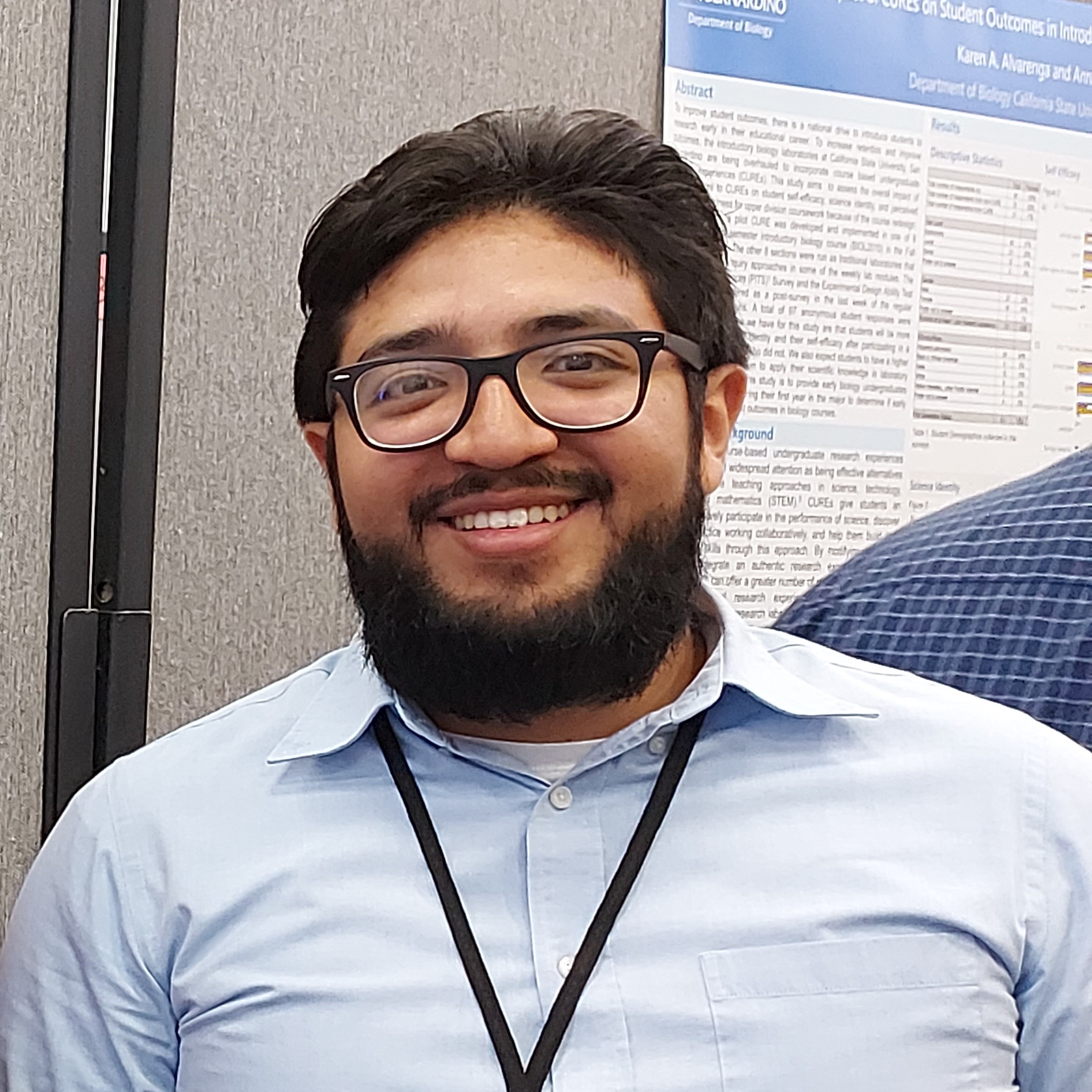
Daniel Alcerro
Daniel Alcerro is a third year biology student passionate about vectors and vector-borne diseases. He has been working in the lab with Dr. Nikbakhtzadeh for the past six months and his project on the effect of Roundup on the reproductive organs of the southern house mosquito was selected for the Cal State Research Competitions in Cal Poly San Luis Obispo.

Gabriela Rojas-Norris
Gabriela Rojas-Norris is currently a 3rd year student studying Environmental Health Science at California State University, San Bernardino. For the past two years, Gabriela worked in the Supplemental Instruction program at CSUSB as an SI leader for General Chemistry 1 and 2. She is currently gaining experience at the mosquito research laboratory under my supervision.

Mahmood Nikbakhtzadeh, PhD, MS
Assistant Professor, California State University, San Bernardino
Adjunct Assistant Professor, San Diego State University
Dr. Mahmood Nikbakhtzadeh is a passionate researcher, studying mosquito behavior and the effects of disturbed habitats on mosquito species. He holds two PhDs; the first in medical entomology from Tehran University of Medical Sciences, Iran, and the second in chemical ecology from the University of Bayreuth, Germany. Following the completion of his second PhD, Dr. Nikbakhtzadeh embarked on a postdoctoral research position alongside Dr. Woodbridge Foster at the Ohio State University. Throughout his career journey, he has worked as a scientist in Dr. Walter Leal’s Lab at the University of California, Davis and has also served as a vector biologist with the state of Vermont. Additionally, he holds an adjunct faculty position with the School of Public Health, San Diego State University. Since 2020, Dr. Nikbakhtzadeh has been serving as an assistant professor of Environmental Health Science at California State University, San Bernardino. His research lab is dedicated to investigating the impact of agricultural pollutants on the behavior and fitness of vectors of West Nile virus and St. Louis encephalitis in southern California.
"Introduction to vector surveillance techniques’"
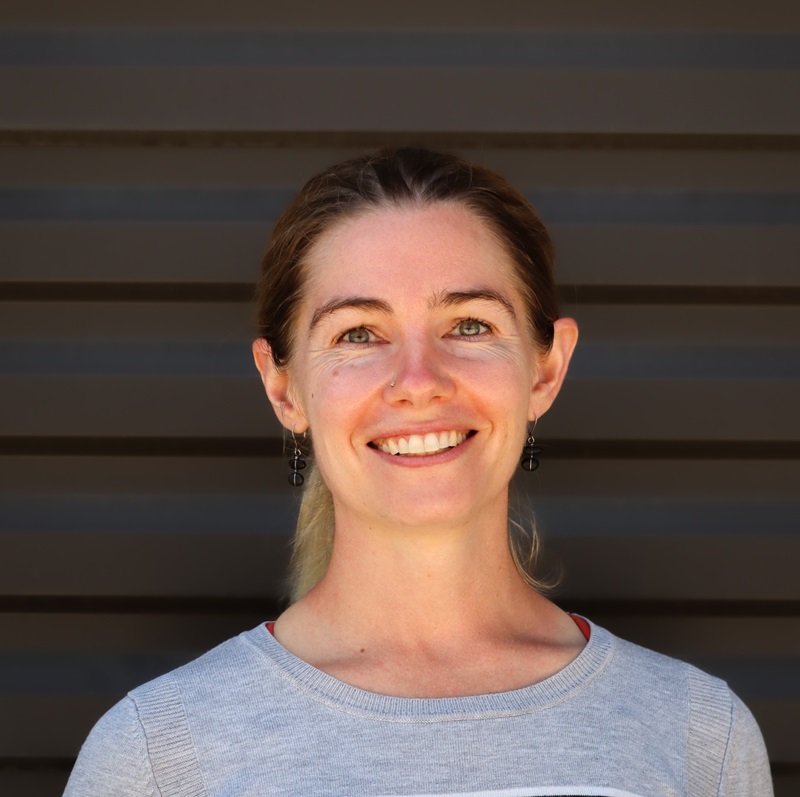
Laura Backus, MPH, DVM, PhD, DACVPM
Assistant Professor, California Polytechnic State University in San Luis Obispo
Dr. Laura Backus is an assistant professor at Cal Poly in San Luis Obispo. She obtained her veterinary degree in 2013 from Colorado State University and subsequently obtained her PhD in epidemiology from University of California, Davis, in 2022. During her PhD, she focused on the epidemiology of tick-borne zoonoses in California and northern Mexico. In her laboratory at Cal Poly, Dr. Backus and her students focus on vector-borne diseases within the paradigm of One Health, exploring how interactions between humans, animals, and the environment lead to vector-borne disease transmission.
● MENTORED RESEARCH FOR STUDENTS AND POSTDOCTORAL SCHOLARS
"Evaluating the effects of traditional and gamified public outreach strategies on knowledge and behavioral changes for children and adults: Larval breeding site reduction"

Chloe Reyes
Chloe Reyes is an undergraduate student at Arizona State University, where she is pursuing a bachelor’s degree in psychology with a minor in chemistry. Passionate about raising awareness and educating the population, her research employs immersive technologies like augmented and virtual reality to enhance STEM education. Chloe also actively contributes to public health initiatives as a research assistant at the Arizona Water Innovation Initiative, focusing on fostering community engagement to address water challenges. As she progresses, Chloe plans to complete her undergraduate studies and attend medical school, aiming to integrate her skills in public health, psychology, and chemistry to advance medical research and disease prevention, especially in the field of vector-borne diseases.

Mina Johnson-Glenberg, PhD, MA
Associate Research Professor, Arizona State University
Dr. Mina Johnson-Glenberg is an associate research professor at Arizona State University in the psychology department. She is a cognitive psychologist and the founder/president of the award-winning educational technology company called Embodied Games, LLC. She leads a team of professionals and students that creates, researches, and disseminates innovative virtual and mixed reality (XR) educational content for 4th graders through life-long learners. Several of her STEM games can be downloaded for free at www.embodied-games.com.
"Determining the phenotypic, genotypic, and enzymatic resistance profile of Culex"

Mackenna Berg
Mackenna Berg is currently pursuing an accelerated 4+1 Master's degree in biology at Arizona State University, under Dr. Silvie Huijben. Her research focuses on investigating the insecticide resistance profile of the Culex tarsalis mosquito throughout Maricopa County. Upon graduation, Mackenna aspires to obtain a position in public health or in academia.
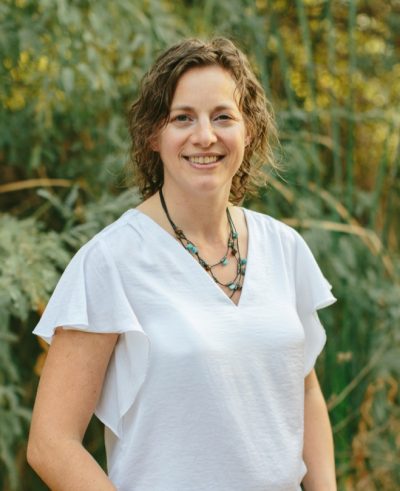
Silvie Huijben, PhD, MSc
Associate Professor, Center for Evolution and Medicine, School of Life Sciences, Arizona State University
Affiliate Faculty, Simon A Levin Mathematical, Computational and Modeling Sciences Center, Arizona State University
Dr. Silvie Huijben is an associate professor at the Center for Evolution and Medicine and School of Life Sciences at Arizona State University. Her overall research interest is to investigate optimal strategies for containment of antimalarial resistance in malaria parasites and insecticide resistance in disease-transmitting mosquitoes while optimizing disease control. In order to do so, the Huijben Lab studies the evolutionary pressures acting on resistant organisms: both the strength of selection at different exposure levels of the drug/insecticide, the cost of resistance, and the interaction of both of these with the environment. They approach this by a combination of working with field-derived samples, empirical data derived from evolutionary experiments in the lab and, in collaboration, with mathematical modeling.
"Predictive modeling of Aedes mosquito distributions and abundance in San Bernardino County, CA for targeted vector control interventions"
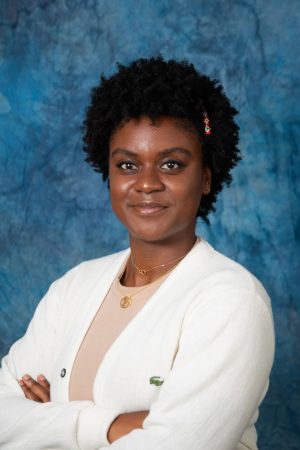
Gaëlle Tatiana Sehi, MPH
Gaëlle Tatiana Sehi is an Ivorian PhD student in the public health department at the University of California, Irvine. She has a Bachelor of Science in biochemistry and biology, and a Master of Public Health in epidemiology. Gaëlle is passionate about raising awareness and educating populations about infectious diseases. Her research interests lie in understanding the ecology of vector-borne diseases, remote sensing, and healthcare accessibility, with a focus on spatial epidemiology, infectious diseases, and maternal & child health in West Africa.

Daniel M. Parker, PhD
Associate Professor, University of California, Irvine
Dr. Daniel Parker is an associate professor in public health at the University of California in Irvine. His lab works on the spatial epidemiology and medical geography of infectious diseases. Research in his lab focuses primarily on geographic and environmental correlates of infectious diseases, and the majority of Dr. Parker’s work has focused on vector-borne diseases in Southeast Asia.
"Using near-infrared spectroscopy to age grade field collected Aedes aegypti mosquitoes in California"
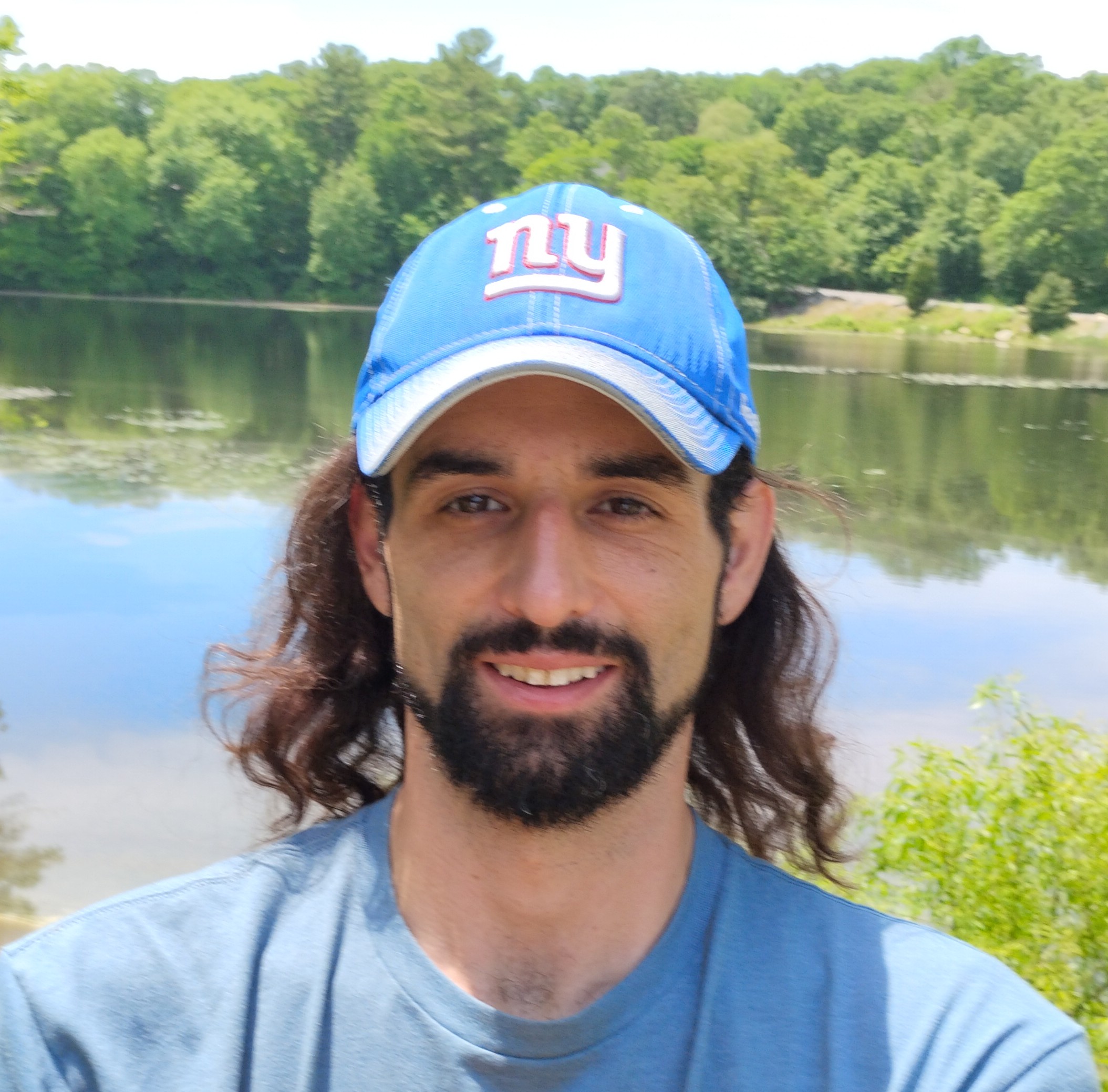
Brendan Riske, MS, BA
Brendan Riske is interested in the application of novel technologies for mosquito control. His career in vector control began when he started working for the local mosquito control district. This experience has kept him focused on the practical applications of his research. Brendan's initial graduate studies focused on Wolbachia and its potential use in mosquito control. For his PhD, Brendan transitioned to studying genetic manipulation of mosquitoes. This includes the creation of new transgenic mosquitoes, and their application for vector control. Brendan has also worked on the development of new larvicidal compounds. After graduation, he plans to return to the field of mosquito control. There are two career paths Brendan can see himself taking, which are not mutually exclusive. One is working for a mosquito control agency, where he can apply his knowledge to improve their programs. There, Brendan can also help with the deployment of novel techniques such as RIDL and Wolbachia based strategies. The other path he can see himself taking is working for the CDC in the Epidemic Intelligence Service, identifying new mosquito borne pathogens. Brendan is currently weighing these options with family considerations in mind and will hopefully have a chance to pursue both paths during his career.

Michael Riehle, PhD, MS
Professor, Department of Entomology, University of Arizona
Dr. Michael Riehle’s lab is interested in developing new strategies for controlling mosquitoes and the diseases they transmit. Specifically, they are attempting to understand the basic molecular mechanisms regulating important physiological processes, including reproduction, innate immunity, and lifespan, in mosquitoes that transmit malaria parasites and arboviruses such as Zika, dengue and West Nile encephalitis. They are exploring these processes through the genetic manipulation of key signaling cascades, such as the insulin/insulin-growth factor 1 (IIS) and jnk signaling pathways. These manipulations have been performed using both transposable elements and more recently the CRISPR/Cas9 system to activate or inhibit these signaling pathways. They are also interested in exploring the population age structure of the yellow fever mosquito Aedes aegypti, a potentially important vector of human disease in Southern Arizona. Using a variety of techniques to age-grade individual field-collected mosquitoes they are attempting to assess the risk that older mosquitoes, which are responsible for a disproportionate amount of arbovirus transmission, pose in areas throughout the Southwest.
"VectorWISE: Assessing Public Health Education Programs and Public Perceptions for Mosquito Disease Prevention and Control in San Diego County."

Paula Stigler Granados, PhD
Associate Professor, San Diego State University
Division of Evironmental Health - Division Head
Dr. Paula Stigler Granados is an Associate Professor in Environmental Health at San Diego State University School of Public Health. Her research has primarily focused on Chagas disease, addressing its epidemiology and the social determinants that drive health inequities, however she has a broad interest in vectorborn disease transmission. Dr. Stigler Granados’ work integrates environmental justice with public health, examining how factors such as poverty, housing, and access to healthcare contribute to the transmission and impact of vector-borne diseases. She has led numerous studies investigating the health effects of environmental exposures and is dedicated to developing community-based interventions that improve health outcomes for vulnerable populations.
TRAINING GRANT PROGRAM
PacVec’s training grant program intends to provide career development opportunities for individuals interested in public-health-relevant research on vector-borne diseases and to enable additional research and training opportunities that will contribute to the development of the public health workforce.
The Pacific Southwest Regional Center of Excellence in Vector-Borne Diseases is supported through Cooperative Agreement Number 1U01CK000649 between the Centers for Disease Control and Prevention (CDC) and the University of California, Davis.
© 2026 – All rights reserved